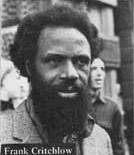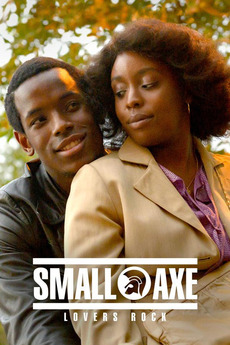
Legal drama is a genre of film and television that generally focuses on narratives regarding legal practice and the justice system. The American Film Institute (AFI) defines "courtroom drama" as a genre of film in which a system of justice plays a critical role in the film's narrative. Legal dramas have also followed the lives of the fictional attorneys, defendants, plaintiffs, or other persons related to the practice of law present in television show or film. Legal drama is distinct from police crime drama or detective fiction, which typically focus on police officers or detectives investigating and solving crimes. The focal point of legal dramas, more often, are events occurring within a courtroom, but may include any phases of legal procedure, such as jury deliberations or work done at law firms. Some legal dramas fictionalize real cases that have been litigated, such as the play-turned-movie, Inherit the Wind, which fictionalized the Scopes Monkey Trial. As a genre, the term "legal drama" is typically applied to television shows and films, whereas legal thrillers typically refer to novels and plays.

Sir Steve Rodney McQueen is a British film director, film producer, screenwriter, and video artist. For services to the visual arts, he was appointed Commander of the Order of the British Empire in 2011. In 2014, he was included in Time magazine's annual Time 100 list of the "most influential people in the world". He has received an Academy Award, two BAFTA Awards and in 2016 the BFI Fellowship.
Alex Michael Jennings is an English actor of the stage and screen, who worked extensively with the Royal Shakespeare Company and National Theatre. For his work on the London stage, Jennings received three Olivier Awards, winning for Too Clever by Half (1988), Peer Gynt (1996), and My Fair Lady (2003). He is the only performer to have won Olivier awards in the drama, musical, and comedy categories.

Leighton Rhett Radford "Darcus" Howe was a British broadcaster, writer and racial justice campaigner. Originally from Trinidad, Howe arrived in England as a teenager in 1961, intending to study law and settling in London. There he joined the British Black Panthers, a group named in sympathy with the US Black Panther Party.

Selma James is an American writer, and feminist and social activist who is co-author of the women's movement book The Power of Women and the Subversion of the Community, co-founder of the International Wages for Housework Campaign, and coordinator of the Global Women's Strike.
The Mangrove was a Caribbean restaurant in Notting Hill, London, England. It was founded in 1968 and run by civil rights activist Frank Crichlow, eventually closing in 1992. It is known for the trial of a group of British black activists dubbed "the Mangrove Nine", who were tried for inciting a riot at a 1970 protest against the police targeting the restaurant.

Frank Gilbert Crichlow was a British community activist and civil rights campaigner, who became known in 1960s London as a godfather of black power activism. He was a central figure in the Notting Hill Carnival. His restaurant, The Mangrove in All Saints Road, served for many years as the base from which activists, musicians, and artists organised the event.

The Mangrove Nine were a group of British Black activists tried for inciting a riot at a 1970 protest against the police targeting of The Mangrove, a Caribbean restaurant in Notting Hill, West London. Their trial lasted 55 days and involved various challenges by the Nine to the legitimacy of the British judicial process. They were all acquitted of the most serious charges and the trial became the first judicial acknowledgement of behaviour motivated by racial hatred within the Metropolitan Police.
Malachi Kirby is a British actor and writer. He gained prominence through his roles in the 2016 Roots remake and the Black Mirror episode "Men Against Fire". He won a BAFTA for his performance in Small Axe: Mangrove (2020).

Letitia Michelle Wright is a Guyanese actress. She began her career with guest roles in the television series Top Boy, Coming Up, Chasing Shadows, Humans, Doctor Who, and Black Mirror. For the latter, she received a Primetime Emmy Award nomination. She then had her breakthrough for her role in the 2015 film Urban Hymn, for which the British Academy of Film and Television Arts (BAFTA) named Wright among the 2015 group of BAFTA Breakthrough Brits.
The British Black Panthers (BBP) or the British Black Panther movement (BPM) was a Black Power organisation in the United Kingdom that fought for the rights of black people and racial minorities in the country. The BBP were inspired by the US Black Panther Party, though they were unaffiliated with them. The British Panthers adopted the principle of political blackness, which included activists of black as well as South Asian origin. The movement started in 1968 and lasted until around 1973.

Altheia Jones-LeCointe is a Trinidadian physician and research scientist also known for her role as a leader of the British Black Panther Movement of the 1960s and 1970s. Jones-LeCointe came to public attention in 1970 as one of the nine protestors, known as the Mangrove Nine, arrested and tried on charges that included conspiracy to incite a riot, following a protest against repeated police raids of The Mangrove restaurant in Notting Hill, London. They were all acquitted of the most serious charges and the trial became the first judicial acknowledgement of behaviour motivated by racial hatred, rather than legitimate crime control, within the Metropolitan Police.

Barbara Beese is a British activist, writer, and former member of the British Black Panthers. She is most notable as one of the Black activists known as the Mangrove Nine, charged in 1970 with inciting a riot, following a protest against repeated police raids of The Mangrove, a Caribbean restaurant in Notting Hill, west London. They were all acquitted of the most serious charges and the trial became the first judicial acknowledgement of behaviour motivated by racial hatred, rather than legitimate crime control, within the Metropolitan Police.

Small Axe is a British anthology film series, created and directed by Steve McQueen. The anthology consists of five films that tell distinct stories about the lives of West Indian immigrants in London from the 1960s to the 1980s. Two episodes of the series were selected into the 2020 Cannes Film Festival. The series premiered on 15 November 2020 on BBC One in the United Kingdom and on 20 November 2020 on Amazon Prime Video in the United States. The title references a proverb – "Small axe fall big tree" or "If you are the big tree, we are the small axe" – that was popularised by Bob Marley in his 1973 song "Small Axe".

Lovers Rock is a 2020 romance film directed by Steve McQueen and co-written by McQueen and Courttia Newland. It stars Micheal Ward and Amarah-Jae St. Aubyn. The film was released as part of the anthology series Small Axe on BBC One on 22 November 2020 and Amazon Prime Video on 27 November 2020. It premiered as an opening film at the 58th New York Film Festival on 24 September 2020.
Leila Hassan Howe is a British editor and activist, who was a founding member of the Race Today Collective in 1973, having previously worked for the Institute of Race Relations. She became editor of the Race Today journal in 1986. Hassan was also a member of the Black Unity and Freedom Party. She is co-editor of a collection of writings from Race Today published in 2019.

Education is a 2020 drama film directed by Steve McQueen and co-written by McQueen and Alastair Siddons. The film was released as part of the anthology series Small Axe on BBC One on 13 December 2020, in the Netherlands on 16 December 2020, and on Amazon Prime Video on 18 December 2020.
Ian Alexander Macdonald QC was a Scottish barrister who was "a pioneer of committed anti-racist legal practice" in the UK. During the 1970s he appeared in many notable political and human rights cases, including those involving the Mangrove Nine, the Angry Brigade, and the Balcombe Street siege. He took silk in 1988 and was leader of the British bar in immigration law for five decades until his death at the age of 80.

Rhodan Gordon was a Black British community activist, who migrated to London from Grenada in the 1960s. He came to public attention in 1970 as one of the nine protestors, known as the Mangrove Nine, arrested and tried on charges that included conspiracy to incite a riot, following a protest against repeated police raids of The Mangrove restaurant in Notting Hill, London. They were all acquitted of the most serious charges and the trial became the first judicial acknowledgement of behaviour motivated by racial hatred, rather than legitimate crime control, within the Metropolitan Police.













